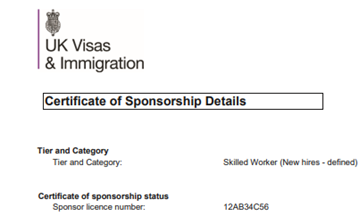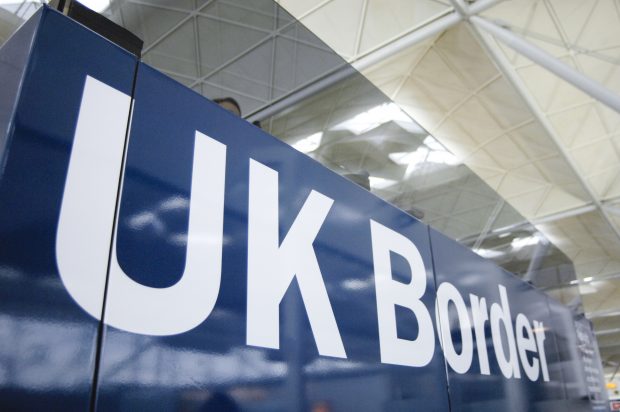In recent months, the UK’s immigration landscape has changed dramatically. Data released by the Home Office shows a record number of sponsor licences being revoked for rule-breaking, as part of a broader crackdown on non-compliance. For businesses that depend on hiring overseas talent, especially via the Skilled Worker route, this is not a theoretical risk — it is a clear and urgent wake-up call.
Below, I unpack what the data reveals, what is driving the spike in enforcement, and how businesses can protect their sponsor licences — and their reputation — before it’s too late.
What the Latest Data Tells Us
Some of the headline figures are stark:
- Between July 2024 and June 2025, 1,948 sponsoring organisations had their licences revoked — more than double the number in the previous 12 months (which was 937).
- Over the period April 2024 to March 2025, the Home Office suspended 1,723 licences and revoked 1,560, compared with 730 suspensions and 408 revocations in the same period a year earlier.
- For example, in Q2 2024 alone there were 1,023 suspensions and revocations of Skilled Worker licences (524 suspensions, 499 revocations) — a dramatic leap from figures in Q2 2023 (89 suspensions, 28 revocations).
These figures clearly show rising enforcement by UK Visas & Immigration (UKVI), and the Home Office isn’t just suspending licences — many businesses are losing their ability to sponsor altogether. Some revocations result from serious breaches; others from failures that may appear “only technical” but are treated as material.
What’s Driving the Crackdown
Several factors contribute to this rising risk:
- Policy Shift & Regulatory Pressure
The Government has signalled that immigration integrity is a priority. Changes such as higher salary thresholds, fewer occupations eligible under reduced rates, and stricter reporting/reporting duties mean compliance bars have moved higher. - Rapid Growth in Licence Holders + Strained Oversight Capacity
With many businesses obtaining sponsor licences in recent years, especially in high-demand sectors (care, hospitality, construction), the volume of sponsored workers has increased sharply. Yet the number of compliance officers and resources has not kept pace. This system strain increases the likelihood even small errors will be noticed and punished. Nara Solicitors+2Personnel Today+2 - Targeting of High-Risk Sectors
Certain sectors are being spotlighted: care, hospitality, retail, construction. These have historically been more exposed to non-compliance, unlawful working, or worker exploitation. When evidence emerges (for example via inspections or reports), the Home Office tends to clamp down more aggressively. Personnel Today+1 - Improved Data / Cross-Agency Monitoring
UKVI is using data more effectively (e.g. from HMRC, DWP) to spot mismatches (like salary vs going-rate, record-keeping lapses, Right to Work failures). There’s less room now for ambiguity or “good faith” errors. - Public & Political Expectations
The Home Office is under pressure to show it is closing loopholes, preventing abuse of visa systems, and avoiding exploitative practices. As such, enforcement is not just about compliance but also about public confidence, fairness, and reducing labour exploitation.
The Risks for Businesses
If your organisation holds (or plans to apply for) a sponsor licence, these are the risks in practical terms:
- Licence revocation or suspension: Losing the right to sponsor new overseas talent, or having existing sponsored workers’ status jeopardised.
- Disruption to operations: Projects dependent on international talent can stall. Recruitment pipelines may collapse.
- Financial costs: Fines, legal costs, costs of remedying compliance failures (e.g. paying owed wages, back-record corrections).
- Reputational damage: Being publicly listed as a revoked sponsor can harm business relationships, staff morale, and brand trust.
- Risk to workers: Sponsored employees may lose rights, be forced to leave, or face insecure working conditions — which in turn can reflect badly on the employer.
What “Raids” and Visits Mean in Practice
Recent enforcement has included:
- Unannounced compliance visits to business premises.
- More frequent audits of how companies are using the Sponsor Management System (SMS): checking if changes in job roles, salary, periods of absence, or other changes have been properly reported.
- Enforcement visits focused on sectors with high sponsor licence concentration (care homes, food & hospitality, construction).
These are not “one-off” or rare; they’ve increased steadily, meaning compliance must now be understood as continuous, not episodic.
Automate Home Office Audits with Borderless
The Borderless platform provides a centralized system for all sponsorships, automating reminders for key tasks and ensuring best practices across your organization, simplifying audit preparation and ongoing compliance.
What Businesses Must Do Now: Compliance Best Practices
Here are some actions I recommend, based on what we’re seeing:
- Audit your compliance structures
Review how well your HR, legal, recruitment, and payroll teams understand sponsor duties: right to work, reporting changes, salary obligations, record-keeping. Identify gaps. - Run mock / internal compliance checks
Simulate what a Home Office audit would do: check diverse cases (early leavers, changes in roles, employee absence) and see if all documentation is up-to-date. - Ensure your Sponsor Management System (SMS) is current
Key staff changes, premises moves, employee job role changes, absences – all must be reported within required timescales. The Home Office can and does penalise for late or missing updates. - Train and embed responsibility
One person should have oversight, but many people may touch compliance (hiring managers, payroll, HR). Training ensures that role and responsibility are understood. - Sector-aware risk mapping
Understand which of your operations are in “high risk” sectors (care, hospitality, etc.), and consider extra controls there. - Keep salary & immigration law under review
Changes to going rates, salary floors, immigration rules happen regularly. What was compliant a year ago may not be now. - Seek legal advice early
If you suspect a non-compliance risk (or your licence is under threat), get expert counsel straight away. In many cases, demonstrating good faith, prompt corrective action, and cooperation helps.
Why This Is a Strategic Imperative
For Borderless and our clients, these developments represent more than a regulatory hurdle. They touch on business strategy, workforce planning, and even competitiveness:
- Companies that cannot reliably sponsor international talent risk losing access to skills that are local scarce.
- Investor confidence is also impacted: organisations with weak compliance may struggle to attract capital or partnership from abroad.
- In industries with reputational risk (health, care, hospitality), perception and compliance are increasingly intertwined.
The Future Outlook: What to Watch
Looking ahead, I anticipate several trends:
- Even tighter salary / skill level thresholds: these may increase again, or become stricter for certain occupations.
- Expansion of compliance visits / audits: more surprise visits, machine-assisted audits, cross-agency investigations.
- Increased penalties: revocation, but also financial penalties, possibly civil or even criminal consequences in serious cases.
- Regulatory reforms: perhaps new reporting obligations, digital right to work checks, stronger licensing for high-risk sectors (e.g. requiring inspection credentials).
- Greater transparency: public listing of revoked sponsors, media exposure, which increases pressure.
Conclusion
The spike in Home Office raids, sponsor licence suspensions, and revocations isn’t noise: it’s a signal. One that UK businesses can no longer afford to ignore.
At Borderless, we are working with clients to build compliance as a core capability — not a box-ticking exercise. Because in today’s environment, having a sponsor licence doesn’t just open opportunity, it also carries risk. And only those who treat compliance with seriousness will thrive.
If you lead a business that sponsors overseas workers — or plans to — now is the time to act. Review. Strengthen. Protect.
Let’s talk if you need help assessing your compliance risk, implementing robust systems, or restoring licence health in the face of audits or enforcement.






